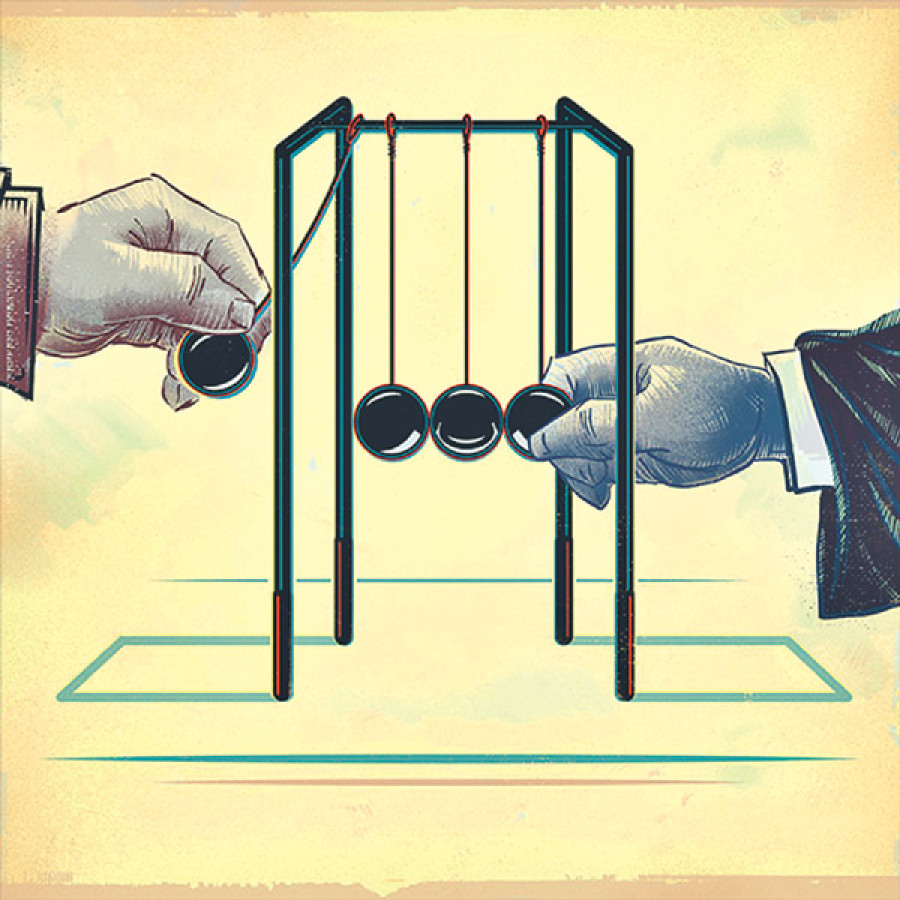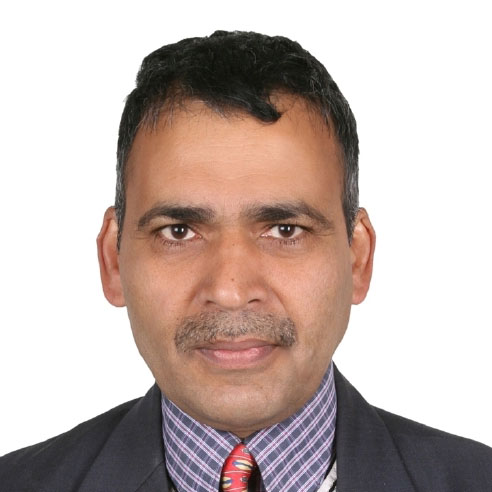Opinion
Nepali expectations
Timely completion of development projects will earn India respect from common Nepalis
Balmukunda Regmi
Prime Minister Pushpa Kamal Dahal Prachanda would do well to consider the following points during his visit to India, although it is drawing to a close. India is not just a neighbour to Nepal. The people of the two countries can cross the border undocumented, unplanned and unprepared. Millions of Nepalis are working in India, including in the armed forces. Likewise, countless Indians are earning their livelihood in Nepal and contributing to our economy. Nepali is one of the official languages in India, and Hindi is a de facto lingua franca in Nepal. We share common religions, cultures, temples and shrines. Nepalis joined hands with Indian brothers in their struggle for independence from Britain. Of course, there have been ups and downs in the relations between the two countries.
Three are three major types of mind-sets at work in Nepal: neutral nationalistic, pro-Indian and anti-Indian. Unorganised intellectuals, a majority of the security forces, bureaucrats, politicians and social workers belong to the neutral nationalistic group. They are mostly silent, honest and hardworking people. Pro-Indians overemphasise Indian security and economic concerns. And anti-Indians try to incite an anti-Indian atmosphere in Nepal to create space for their influence. They blame India for Nepal’s economic backwardness, political chaos and corruption. It is time for nationalist forces to wake up and expose both these unwelcome forces. They have retarded our economy, created social disharmony and internal conflicts, and ruined our national pride and international image. Prime Minister Dahal should stand with the nationalistic forces opposing undue outside pressure.
Pragmatic approach
A regime change in Nepal should not be expected and it cannot bring much change to our India policy and vice versa. Our prime minister is visiting India at a time when bilateral relations are at a low ebb. Let it be a goodwill visit. There is no need to hurry. He represents a small, landlocked, poor and politically divided country. He should speak for the welfare of all Nepalis. India may give some concessions to Nepal, but the Indian leadership has its limitations too. His proposals should be practical, viable and mutually respectful. If India puts forward any proposal, take time to respond. Move ahead if there is consensus in Nepal, otherwise maintain the status quo.
We should identify areas of comparative advantage, resolve challenges and expand markets. Following Panchasheel, we should uplift the economy and invite foreign direct investment (FDI) from India for infrastructure development and technology transfer. It is true that Indian firms come to Nepal to make money. Who comes to lose money? Investments, ventures and businesses last long only when they are win-win for both parties. We should find ways to utilise natural and human resources.
Nepal-India disputes can be avoided only if both governments take their citizens into confidence. The creation of joint cross-border poverty alleviation projects may promote people-to-people understanding. Household-scale barter trade and marketing should be allowed. Elements of humanity across the border should be encouraged. Mistreatment of nationals on each other’s territory should be immediately addressed by forming a mechanism. The 1950 treaty clearly states that nationals of both countries can freely move, work, settle and own property in each other’s territory. This provision should be respected.
Indian Prime Minister Narendra Modi is widely credited for his full commitment to decisions. This is an opportunity for us to remind India about Indian projects in Nepal that are yet to be completed. Dahal should keep in mind the Naumure Hydropower Project as well as the Pancheshwor Multipurpose Project and request India to speed up the Arun III and Upper Karnali hydro projects, the Mid-Hill Highway and Postal Highway. Timely completion of these projects will provide Nepal electricity and connectivity while India will receive the respect and trust of the Nepali people.
Constitutional issues
Lastly, the issue of the new constitution. There is no need to deny that our recent political developments have divided the Nepali people. We embraced ethnic and regional divisions. In producing a document of power balance, we have created chaos. By doing so, we have pleased the westerners. We did not bother to consider the sentiments of our immediate neighbours. We were so hurried that we took shortcuts everywhere in the process of writing the constitution. We neglected the ‘unnecessary’ voices of unorganised people and small parties. Their voices were dismissed as being trivial, fading, non-democratic, worthless, retrograde, sponsored and hegemonic efforts. We rejected the call for a referendum on burning issues and let a few leaders handle everything. We we did it in ‘good faith’ and for the sake of ‘efficiency’, and also because we thought everybody would accept it once we declared it. But events emerged differently. To the delight of our politicians, India imposed an unofficial blockade on Nepal. India got trapped!
India has suffered much in recent history due to internal conflicts.
It had to accept the India-Pakistan partition. The Kashmir conflict is still sucking human blood. It lost Mahatma Gandhi. Its efforts to bring peace in Sri Lanka led to the assassination of Rajiv Gandhi. His mother Indira Gandhi lost her life for her boldness. Courage is a characteristic of great leaders, and Modi has it. But there is little Modi can do to solve Nepal’s current political crisis. His voice prevented Sonia Gandhi from claiming the Indian premiership. He cannot support similar demands of our guest citizens. Nor can he deny the rights of Nepalis agitating for an amendment to the constitution. Both Dahal and Modi know that the constitution is Nepal’s internal issue that should be solved by us. This is good for Nepal and India, good for Dahal and Modi, good for all.
Regmi is a professor at Tribhuvan University Institute of Medicine




 21.12°C Kathmandu
21.12°C Kathmandu










